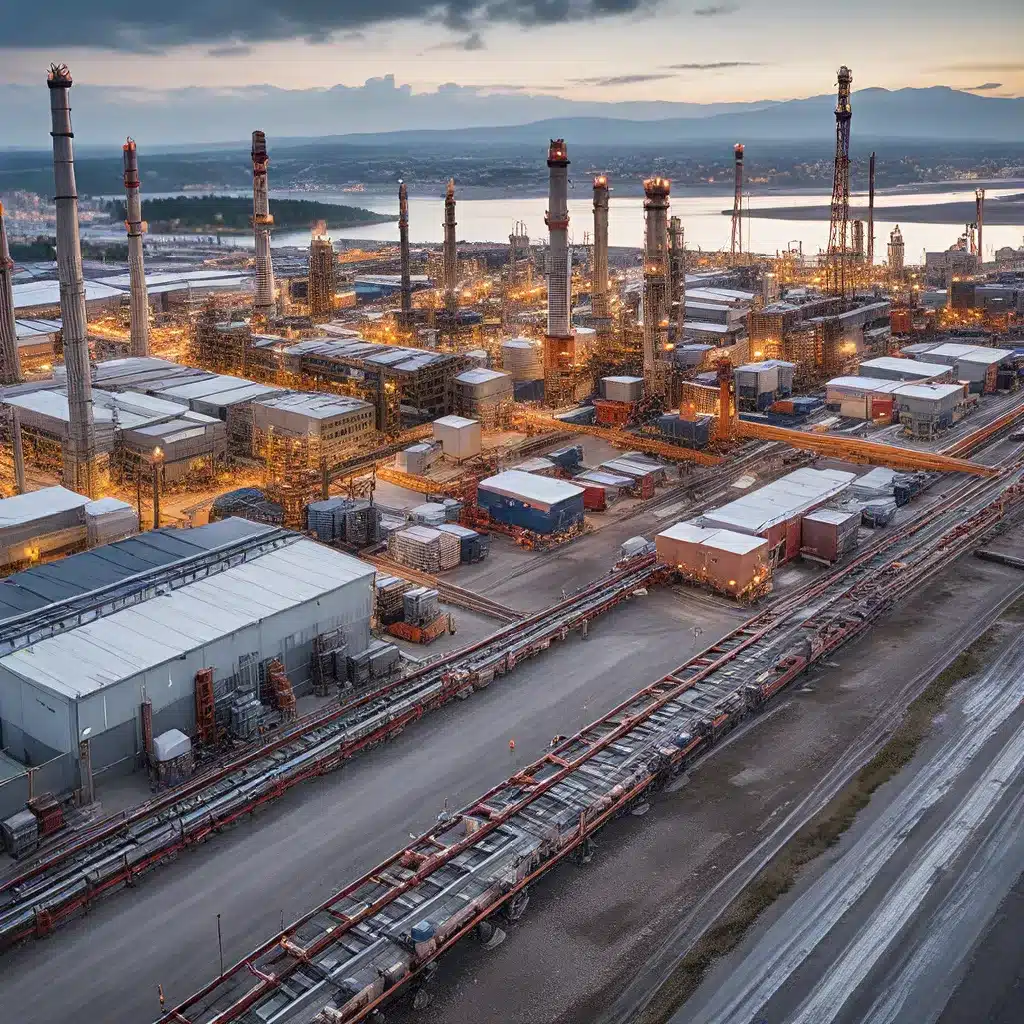
The rise of Industry 4.0 has ushered in a new era of manufacturing, where the Industrial Internet of Things (IIoT) is redefining traditional production paradigms. At the heart of this transformation are sensor networks, which are enabling a wave of connected machines and data-driven insights that are driving proactive decision-making, minimizing downtime, and boosting productivity across the industrial landscape.
Unlocking the Power of Sensor Networks in IIoT
Sensor technologies are the backbone of the IIoT, providing the critical data that powers real-time monitoring, predictive maintenance, and process optimization. By embedding sensors across the factory floor, manufacturers can gain unprecedented visibility into their operations, capturing everything from equipment performance and energy consumption to product quality and workplace safety.
This wealth of data-driven insights enables manufacturers to make more informed, data-driven decisions, leading to enhanced efficiency, productivity, and competitiveness. For example, by leveraging predictive maintenance algorithms powered by sensor data, companies can anticipate equipment failures and schedule proactive maintenance, reducing costly downtime and maximizing asset utilization.
Moreover, sensor-enabled quality control ensures that products meet the highest standards, while workplace safety sensors can monitor environmental conditions and trigger alerts to protect employees. The data collected by these sensor networks can also fuel innovation and sustainability efforts, as manufacturers gain a deeper understanding of their operations and identify opportunities for improvement.
Transforming Manufacturing with Smart Technologies
The integration of IIoT and sensor networks is just the beginning of the Industry 4.0 revolution. Manufacturers are now embracing a host of smart technologies to further enhance their operations and drive competitive advantage.
Blockchain technology, for instance, is strengthening supply chain transparency and efficiency, while 5G connectivity supports real-time data processing and advanced applications like predictive maintenance. The metaverse offers new possibilities for virtual design and collaboration, and digital twins can optimize operations by simulating and testing changes before implementation.
Smart meters and sub-metering systems also play a crucial role in energy management, enabling manufacturers to monitor and optimize their resource consumption, contributing to their sustainability efforts and reducing operational costs.
Securing the Industrial IoT Ecosystem
As sensor networks and IIoT technologies become more pervasive, the need for robust security measures has never been more critical. Cybersecurity threats, such as data breaches, unauthorized access, and malware attacks, can have devastating consequences for industrial operations, leading to production disruptions, financial losses, and even safety hazards.
To mitigate these risks, manufacturers must implement a comprehensive security strategy that addresses both hardware and software components of their IIoT ecosystem. This includes:
- Secure device onboarding and authentication: Ensuring that only authorized devices can access the network and verified data sources can be trusted.
- Encrypted data transmission: Protecting sensitive information from interception and tampering during transit.
- Vulnerability management: Promptly addressing software vulnerabilities and applying security updates to minimize the attack surface.
- Continuous monitoring and incident response: Detecting and responding to security incidents in a timely manner to minimize the impact on operations.
By prioritizing industrial IoT security, manufacturers can safeguard their critical assets, maintain operational continuity, and build trust in their sensor-powered IIoT systems.
Optimizing Energy Consumption and Sustainability
Energy management is another crucial aspect of the sensor-driven IIoT revolution. Smart meters and sub-metering systems, integrated with sensor networks, provide manufacturers with granular visibility into their energy consumption patterns, enabling them to identify and address inefficiencies.
Sensor-powered energy management solutions can also optimize the utilization of renewable energy sources, such as solar and wind, and implement demand-side management strategies to reduce peak loads and minimize energy costs.
Furthermore, the data collected by these sensor networks can inform sustainability initiatives, helping manufacturers make more informed decisions about resource allocation, waste reduction, and environmental impact. By embracing energy-efficient and eco-friendly practices, industrial organizations can not only reduce their carbon footprint but also enhance their long-term competitiveness and brand reputation.
The Future of Sensor-Powered Industrial IoT
As the Industry 4.0 transformation continues to gain momentum, the role of sensor networks in the Industrial Internet of Things will only become more pivotal. Manufacturers that leverage these technologies will be well-positioned to drive operational excellence, enhance productivity, and maintain a competitive edge in an increasingly dynamic and demanding marketplace.
From predictive maintenance and quality control to energy management and sustainability, the possibilities offered by sensor-powered IIoT are vast and transformative. By embracing this technological revolution, industrial leaders can unlock new levels of efficiency, agility, and innovation, paving the way for a more sustainable and prosperous future.